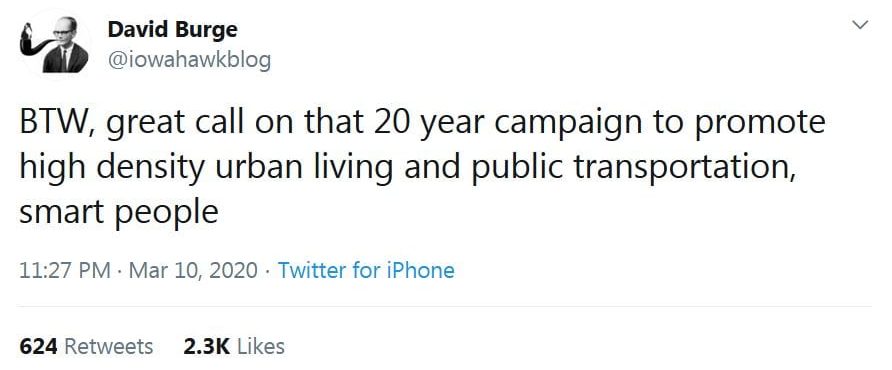
Before voting to confirm Robert F. Kennedy Jr. as the secretary of Health and Human Services (HHS), Sen. Bill Cassidy (R–La.) stated on the floor of the Senate that RFK Jr. had promised him that "he would work within the current vaccine approval and safety monitoring systems, and not establish parallel systems. If confirmed, he will maintain the Centers for Disease Control [CDC] and Prevention's Advisory Committee on Immunization Practices without changes. CDC will not remove statements on their website pointing out that vaccines do not cause autism."
Every one of the main promises made to Cassidy has been broken. Eschewing the usual system of consultations with outside independent vaccine experts, RFK Jr. announced on X in May that "as of today the COVID vaccine for healthy children and healthy pregnant women has been removed from the CDC recommended immunization schedule." This announcement makes it harder for expectant mothers to access the vaccines because some insurance companies are less likely to pay for them.
In their lawsuit in response to RFK Jr.'s announcement, the American Academy of Pediatrics, the American College of Physicians, and the American Public Health Association argued that the secretary's goal is "to undermine trust in vaccines and reduce the rate of vaccinations in this country."
What about his promise to maintain the CDC's Advisory Committee on Immunization Practices without changes? Nope. RFK Jr. fired all of the vaccine experts and loaded up the committee with anti-vaccination appointees.
Finally, there is RFK Jr.'s promise that the CDC will not remove statements on its website pointing out that vaccines do not cause autism. As of Wednesday, the CDC website states:
- The claim "vaccines do not cause autism" is not an evidence-based claim because studies have not ruled out the possibility that infant vaccines cause autism.
- Studies supporting a link have been ignored by health authorities.
- HHS has launched a comprehensive assessment of the causes of autism, including investigations on plausible biologic mechanisms and potential causal links.
After making these statements at the top of the webpage, the CDC website maintains a headline with an asterisk.

Why the asterisk? A note at the bottom of the page explains:
The header "Vaccines do not cause autism" has not been removed due to an agreement with the chair of the U.S. Senate Health, Education, Labor, and Pensions Committee that it would remain on the CDC website.
These changes are not merely dishonest; they are dangerous. All three of the new claims at the top of the CDC website are specious.
First, evidence accumulated over numerous studies, including studies with millions of children, has found no link between vaccinations and autism.
Second, in support of this claim that studies suggesting a link are ignored, the CDC gestures at reviews by the HHS's own Agency for Healthcare Research and Quality (AHRQ). Scrounging through them for something that might suggest harm, RFK Jr.'s team found a minor note in a 2021 AHRQ report that observed the current evidence for childhood Tdap (Tetanus, diphtheria, pertussis) vaccination is "insufficient to support or reject a causal relationship between those vaccines and autism."
The report found that with respect to vaccines recommended for children and adolescents, "we found either no new evidence of increased risk for key adverse events with varied [strength of evidence] or insufficient evidence." The critical question is: "insufficient evidence" for what? The report explains: "There remains insufficient evidence to draw conclusions about some rare potential adverse events [emphasis added]." Certainly, RFK Jr.'s alleged "autism epidemic" caused by vaccines would not count among "rare potential adverse events."
It is worth noting that the cited 2021 AHRQ report is peppered throughout with findings that vaccines do not cause autism. The new CDC site also fails to mention that the report observed that prenatal Tdap vaccination is not associated with a higher risk of autism in children.
Meanwhile, as a result of falling Tdap vaccination rates, the number of American children infected with whooping cough (pertussis) is surging.
What about the third claim that HHS has launched a "comprehensive assessment of the causes of autism"? In April, RFK Jr. appointed anti-vaccination stalwart David Geier to head up that assessment. As I noted at the time, "Geier will doubtlessly and transparently get the answers that our new secretary of Health and Human Services thinks he already knows." In September, RFK Jr. announced the dubious finding that taking the painkiller Tylenol during pregnancy was associated with a higher risk of autism in children.
"We are appalled to find that the content on the CDC webpage 'Autism and Vaccines' has been changed and distorted," declares the Autism Science Foundation in a statement, "and is now filled with anti-vaccine rhetoric and outright lies about vaccines and autism."
That's correct. This isn't what the Senate—or the American people—were promised.
The post RFK Jr. Breaks His Promises About the CDC on Vaccines and Autism appeared first on Reason.com.
THE INTERNET CAN LOCATION-CHECK YOUR ASS:
He made this post when it was 65 degrees (at night, 80 during the day) in Gaza.
And then three days later, we find out he’s actually in Poland.
It’s all fake. Always has been. https://t.co/08pkA4ptZn
— Bonchie (@bonchieredstate) November 22, 2025
More:
Breaking: @elonmusk just turned on the location spotlight and the entire “Gaza resident” influencer industry & fake IDF soldier industry just imploded.
Turns out the “eyewitness in Rafah living under bombardment” has been live-tweeting from a comfy flat in Islamabad while the… pic.twitter.com/qx0fWbH2Bj
— Faerie 🧡 (@LiquidFaerie) November 22, 2025
More to come?
SMART CITIES WILL KILL FREEDOM:
This same urge might explain the impatience of the smart city urbanist, née venture capitalist, who told The New York Times that “human beings currently live in cities that are the equivalent of flip-phones”. There’s a keen sense of waste; our sheer lack of optimisation offends. Another investor-urbanist, a Mr Huh, complains: “We have not affected the fundamental building blocks of infrastructure and society.” The Times reporter writes that Mr Huh gestured to his laptop and said: “We’ve made this better. We’ve made the new things better. We haven’t made the old things better.” In a helpful gloss, the reporter points out that in thinking about how to make the old things better, “people in tech prize ‘first principles’, a concept that suggests that historical awareness and traditional expertise can get in the way of breakthrough ideas”.
Here we see the old drama of modernism playing out one more time. The urban blank slater reminds us of Thomas Hobbes’ disgust with the customary or common law, that body of precedents and practices that ordered English life, but which appeared to his impatient mind as a sediment of inherited mindlessness. For him, life needed to be governed by laws that would be excogitated from scratch (by him), according to clear principles, not by the haphazard accumulation of informal usages and understandings. Rather than seeking the reasons latent in our unthought practices, and from them trying to reverse-engineer the logic of a city, the smart city epigones of Hobbes place their trust in their own powers of a priori reason.
But governing by syllogism doesn’t work very well. For one thing, the sovereign forfeits that easy, habitual law-abidingness that custom secures. As Thomas Schrock said in his critique of Hobbes: “We follow customary laws, not out of fear, but because they are here with us, our own, part of us.”
Governing by syllogism, on the other hand, requires heavy police work. Call Security!
It sure does, particularly when the smart cities’ residents’ lifeclocks start blinking red:
The 15-minute city idea trades freedom for a life of routine drudgery, mating high-tech with urban density:
This is the horror movie they are bringing to life in your city soon. #15MinuteCity https://t.co/rQXNju2Dzl
— James Woods (@RealJamesWoods) April 1, 2024
But as we saw in 2020, at quite a cost:

As Glenn wrote in 2020: Coronavirus lessons on density, mass transit, bureaucracy and censorship: They kill.
